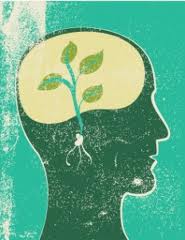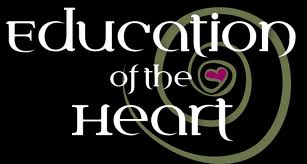Sponsored Links
Education of the Mind, Heart, and Hands: Challenges to the Changing Educational System
SOME CALL IT ‘COOPERATIVE EDUCATION’. But we can argue that the more fitting manner to depict this educational approach that involves the ‘3H’—the head, the hand, and the heart—is to call it a ‘holistic education’.
Education of the mind
 Education of the head (or the mind) has been the focus of educational systems for long. Especially during ancient Greek’s dominance, education was almost synonymous to mere intellectual development. Classical Greek philosophers considered intellectual exercises, like contemplation, as the highest form of activity.
Education of the head (or the mind) has been the focus of educational systems for long. Especially during ancient Greek’s dominance, education was almost synonymous to mere intellectual development. Classical Greek philosophers considered intellectual exercises, like contemplation, as the highest form of activity.For them, to be mentally capable is to be virtuous—that no matter how skillful you are practically, you are ‘less human’ if you have substandard academic ability.
Educating the mind—which is usually related to cultivating one’s cognitive understanding, critical thinking, analytic ability, and reasoning prowess—is undoubtedly indispensable. For how can one’s worldview and decisions in life be really sound and sensible without an educated mind? It’s a good thing that many of teaching strategies today are still focused on educating the mind.
Nonetheless, to neglect the heart and the hand is to advocate the impractical ‘knowledge-for-knowledge-sake’ principle. Worse, educating only the mind promotes the so-called ‘armchair speculation’ or the practice of spinning elegant theories in solving a problem without either knowing much about it or getting involved in the solution. Hence, to modify one philosopher’s statement, “Educating the mind without educating the heart and the hand is no education at all”
Education of the hand

Concerning educating the hand, it is important to note that among creatures, human alone has hands. We, humans, use it as a tool, as a symbol, and as a weapon.
The hand serves as eyes for the blind and the mouth for the mute. Hand movements and gestures portray salutation, supplication, and even denunciation. The hand of a loving mother is placed upon her child’s forehead to determine the presence of fever. To applaud someone, the hands clap. And as their gestures give emphatic meaning to spoken words, the hands speak along with the mouth.
The hand points, asserts, leads, and even commands. It conveys human emotions as it reveals one’s concern or indifference toward another. By various hand movements, we bless and express approval. In court, we take an oath by raising our right hand and placing the left hand on the Bible.
Figuratively or otherwise, a man takes a woman's hand in marriage. To express our respect to our elders, we Filipinos use our hands to practice the traditional ‘pagmamano’. We wave our hands in greetings and shake each other’s hands in formal meetings, especially in closing an agreement.
Compared to the forelimbs of other animals, our hands are highly skillful as they possess unique abilities and functions. Human hands are very much responsible for the resourceful expressions that typify us humans and distinguish us from other creatures. As the philosopher Immanuel Kant said, “The hands are man’s outer brain.” In view of all of these, there’s really an immense necessity to educate our hands, literally or otherwise. (Read also: Immanuel Kant Philosophy: Critical Method/Transcendental Idealism)
Educating the hand commonly involves improving psychomotor skills, putting into practice or applying the theories learned, learning by doing, and getting a feel for how things actually work. Fortunately, it is one of the thrusts of the so-called K+12 program (though the timing of which is highly questionable). Indeed, the importance of giving emphasis on practicum, on-the-job training, and TESDA courses nowadays can never be overemphasized.
Education of the heart
 In the unborn child, the heart is the first organ that comes into being and starts to operate, providing minute pulses that indicate life.
In the unborn child, the heart is the first organ that comes into being and starts to operate, providing minute pulses that indicate life.Symbolically and otherwise, man is not really human without a heart. Hence, for an educational program to be really humanly holistic, it has to include education of the heart.
Academically, educating the heart entails nurturing one’s affective and emotive dimension. It involves inspiring the students to value and care about the outcomes of learning, motivating them to feel the importance of the process and goals of education, and allowing them to experience a personal connection to the training. This therefore challenges the teachers and the educational institutions to be more of a motivator, rather than a passive vessel and apathetic passageway of information.
We may add that the heart aspect also relates to morality or having the right purpose in learning. It calls the learner not only to become knowledgeable and skillful but also ethical. That is, to be able to use one’s knowledge to make the world a better place, promote values, and empathize with other people.
Education of the heart therefore takes in what has not been usually dealt with in conventional education. It teaches us, among others, not just to exist and breathe but also to live meaningfully. ‘Heart education’ admonishes everyone not only to consider the pronouncement of the mind but also to listen to the voice of the heart. It reminds all persons involved that the heart—being the dwelling place of love—promotes balanced living, altruism, compassion, cooperation, coexistence, and empathy.
As a final note, this theme teaches us, among others, that the value of education lies not simply in the acquisition of information, but more importantly in the valuable application of knowledge and the meaningful effect education has on our lives, on the lives of others, and on the community. (Copyright by Jensen DG. Mañebog)
Activities:
1.In the comment section below, write your two-sentence reflection on the lecture/article.
2. Also read other viewers’ remarks and courteously comment on them (choose at least three remarks to comment on). If your remark received comments from other viewer/s, politely react on the comments.
3. Write a three-paragraph ‘application paper’ concerning the concepts mentioned in the lecture/article. (To be sent to your professor’s email)
How to cite this article:
Mañebog, Jensen DG. “Education of the Mind, Heart, and Hands: Challenges to the Changing Educational System.” OurHappyschool.com. OurHappySchool, 21 February 2013. Web. (date retrieved)
For Students' comments, click here: HOW TO START A COOL DISCUSSION IN MyInfoBasket.com





Comments
unbalzdx (not verified)
Mon, 07/01/2013 - 10:16
Permalink
yvzalnko oakley store sunglasses online buy Richmond hill